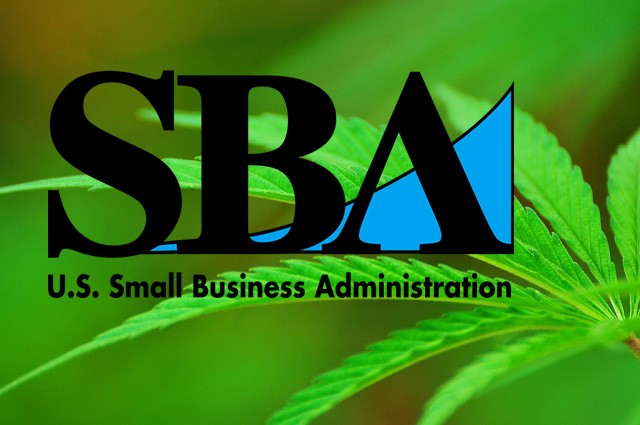WASHINGTON D.C.–A recent policy change at the Small Business Administration (SBA) would prevent any businesses associated with the cannabis industry from accessing SBA-backed loans–even businesses like hydroponic companies, web/IT designers, and hard goods manufacturers, among others.
News network CNBC originally reported the story, citing that the SBA has been prohibited from extending loans to “direct marijuana” businesses for some time, and quoting SBA policy, noted: “… A [cannabis] business [is one] that grows, produces, processes, distributes, or sells marijuana or marijuana products, edibles, or derivatives, regardless of the amount of such activity… This applies to personal use and medical use even if the business is legal under local or state law.”
The new change was communicated to SBA partner banking institutions in a policy memo dated (and went into effect) April 3, and expanded restrictions on lending to “indirect marijuana” businesses, which include:
“… A business that derived any of its gross revenue for the previous year (or, if a start-up, projects to derive any of its gross revenue for the next year) from sales to Direct Marijuana Businesses of products or services that could reasonably be determined to support the use, growth, enhancement or other development of marijuana. Examples include businesses that provide testing services, or sell grow lights or hydroponic equipment, to one or more Direct Marijuana Businesses. In addition, businesses that sell smoking devices, pipes, bongs, inhalants, or other products that may be used in connection with marijuana are ineligible if the products are primarily intended or designed for such use or if the business markets the products for such use.”
“This SBA Policy Notice extends one of the many burdens of prohibition to nearly every business that works with, supplies, or offers services to cannabis businesses,” Ammon Ford, attorney with Seattle-based Gleam Law told mgretailer. “Those effects will extend not only to suppliers and headshops, but could further limit access to necessary services like attorneys, CPAs, bookkeepers, landlords, and contractors by driving up prices and increasing the risks associated with serving cannabis businesses.
“The policy is, to a degree, absurd and elitist because it will not punish any of the large businesses that serve the cannabis industry,” he added, “ –only those who would have otherwise been eligible for an SBA loan.”
Hemp businesses have also been targeted by the policy change. The SBA defined hemp businesses, as “a business that grows, produces, processes, distributes, or sells products purportedly made from ‘hemp’ is ineligible unless the business can demonstrate that its business activities and products are legal under federal and state law. Examples of legal hemp products include paper, clothing, and rope.”
By including hemp-related businesses in the new restrictions, the SBA’s policy could also affect businesses and organizations operating primarily in the CBD space. Cannabidiol, or CBD, is a compound derived from cannabis but is not psychoactive and is used holistically for its wide-ranging medicinal properties. Many cannabis “cosmeceuticals” formulations for beauty and wellness products use hemp-derived CBD oil as an ingredient. Other hemp products, including apparel, textiles, and, yes–even rope–also would fall into the restricted category.
Though states increasingly move to legalize medical and recreational cannabis, the SBA policy change could present obstacles for entrepreneurs, start-ups and small businesses interested in providing resources to the emerging cannabis industry and its consumers, in an already challenged banking environment.
“State actions are inadequate. There are thousands of legal and financial benefits, under Federal laws, which are denied to cannabis businesses and their partners on an ongoing basis,” Ford pointed out.
Federal prohibition against cannabis in the United States means U.S. banks and financial institutions are effectively banned from access to basic merchant banking, even in legal states. Typically, businesses directly involved in the cannabis industry seek capital from investors or are self-financed.
“The only basis for this policy change is the idea that anyone doing business with a cannabis company is part of a conspiracy to commit a Federal crime. Legally speaking, that is exactly what many of us do on a daily basis and the very reason why it is so very important that we deschedule (not merely reschedule) cannabis at a federal level,” Ford said.








